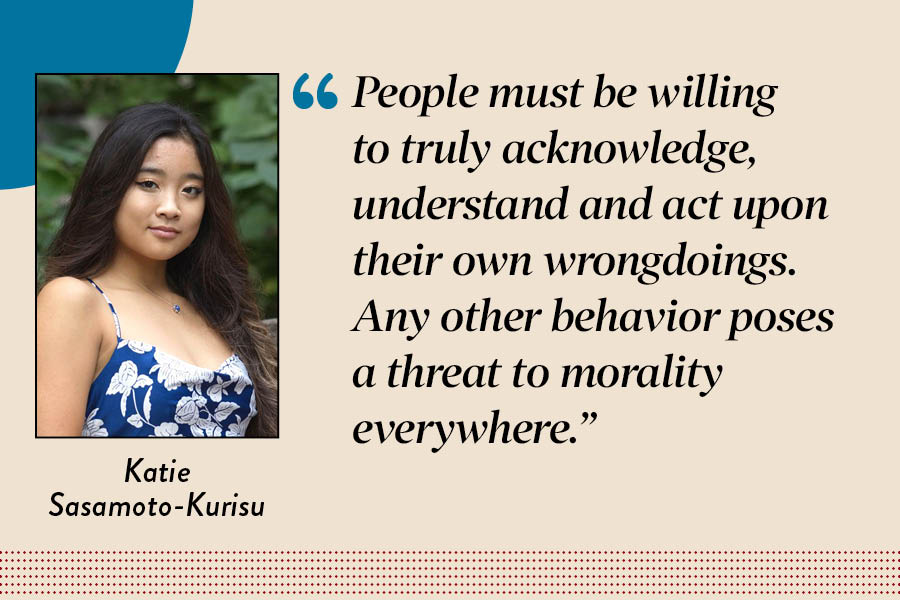“I can say, you know, I can appreciate what it means to be Jew…ish, well, only joking. Sending love to my socialist Berkeley family, and nothing more socialist than getting publicly owned by yours truly, George Santos.”
Just days after being expelled from the House of Representatives Dec. 1, George Santos — the former congressman charged with stealing campaign donor money for personal expenses and making false statements about himself, such as having Jewish ancestry — began personal recording clips with short, uplifting, often humorous, sentiments on the celebrity-oriented video app Cameo. Mr. Santos’ profile describes him as a “former congressional ‘icon’!” alongside a painted fingernails emoji.
As a stark shift from recent — and still current — insistence on the public shaming known as cancel culture, some celebrities and public figures are taking a public stand defending their actions and basking in the spotlight, rather than pleading for forgiveness.
Some elements of this behavior are rooted in socially desirable traits — the ability to accept one’s mistakes, being able to continue moving forward and staying true to oneself. Yet there is one major caveat to this mindset, which can become at once harmful and potentially dangerous: Perhaps these people embrace their mistakes because they don’t believe what they have done is a mistake. Therein lies the issue.
People must be willing to truly acknowledge, understand and act upon their own wrongdoings. Any other behavior poses a threat to morality everywhere.
As we grow up, we are taught socially acceptable behavior from our parents, family, teachers and friends. Our guardians take accountability for our actions, because we simply don’t know better. This system of continuous learning is inherently human — and inherently flawed. Sometimes people don’t learn the lessons society expects them to, or in the necessary ways they need. The resulting ignorance perpetuates continued errors, which often manifests in the workplace or social scenarios as a damaging ignorance of one’s own ignorance.
In addition, much of our perception of moral behavior is influenced by consequential reactions and what are known as self-conscious emotions: shame, guilt, embarrassment, to name a few. A 2007 journal article by the International Journal of Behavioral Consultation and Therapy highlights how in the past a person would learn appropriate behavior by being punished for doing what’s inappropriate, but today a person is more likely to be reinforced through praise even for bad behavior. This perpetuates the issue. Emphasis on positive self-conscious emotions like pride, gratitude and approval are ever-present now, and powerful individuals like Mr. Santos are reveling in them — perhaps for the wrong reasons.
In recent years, many celebrities have publicly apologized or taken personal accountability for actions the public has deemed problematic. For many of these acknowledgements, they have been further criticized for being ungenuine or otherwise ignorant. One example is Ellen DeGeneres’ 2020 apology for creating a toxic workplace, which she presented as a comedic routine in the opening episode of season 18 of her show. It’s no secret meaningless blanket apologies are hardly beneficial, and may even prolong damage. To take full responsibility, people must truly understand the mistake they made and agree to never repeat it.
Embracing one’s mistake is only beneficial for society if the individuals — and public officials, no less — are actively willing to learn from their mistakes, acknowledge it publicly and vow to never engage in similar behaviors again. Society itself must also be willing to accept these individuals’ apologies, striking a balance between holding those in the public eye accountable while allowing them to take personal responsibility. Until then, we will live in a world polarized by the shameless and the shamed.





















































